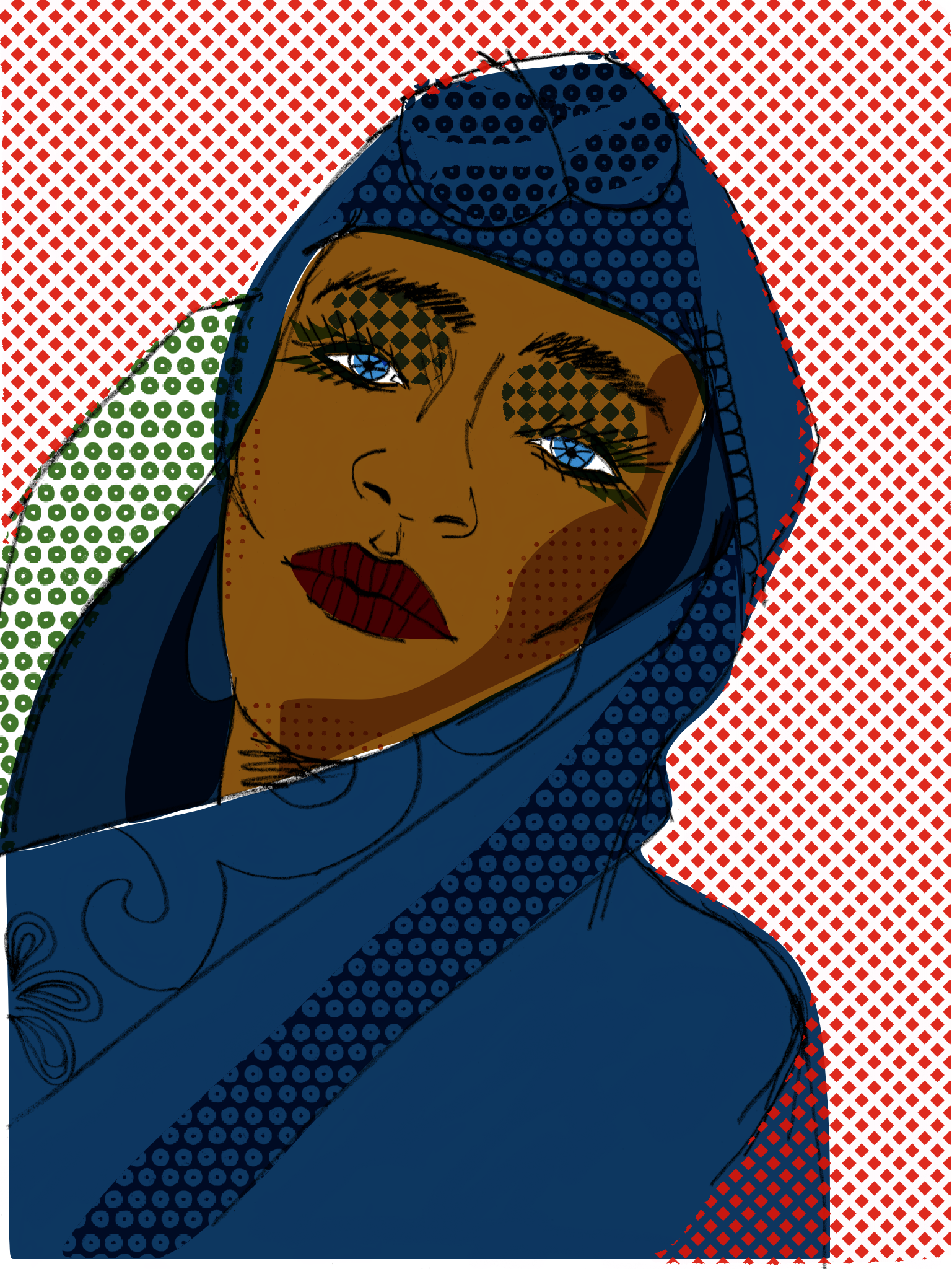Pepper LaBeija by George M Johnson
Illustration by Constantin Prozorov
George M. Johnson is a Journalist and Activist located in the NYC area. He has written for Entertainment Tonight, EBONY, TheGrio, TeenVogue, NBC News and several other major publications, covering race, gender, health, and pop culture. Follow him on Facebook, Twitter, or Instagram.
Pepper LaBeija. The Icon. The Legend. The Erasure.
Quiet as it has been kept, the LGBTQ movement has been ongoing for nearly 100 years. Often left out of the history, many of the leaders of our past including James Baldwin, Alice Walker, and Duke Ellington identified across the sex and gender spectrum; these narratives only discussed long after the heights of their careers. Within that movement, the ballroom culture has flourished and grown into an international powerhouse of identity serving as a cornerstone of the LGBTQ community. Within that culture, there are countless names who story never get told, and Pepper LaBeija has unfortunately been a casualty of this process.
Given name William Jackson, LaBeija was born on November 5th, 1948 in the Bronx NY. Although known for wearing fashions associated with men, LaBeija’s chosen pronoun was “she”, and requested to be referred to as such. By 1971, she took over as the head of House of LeBeija—from which her surname is derived—and remained the mother of the House for over 30 years. LeBeija was known for her performances and her iconic “Egyptian effect” runway performances, where she over her lifetime won more than 250 trophies. To earn money, LeBeija produced balls and taught modelling, in addition to “mopping” (shoplifting know known as crafting) luxury clothing. LeBeija would live most of the last 10 years of her life bedridden, as she had both feet amputated due to complications with diabetes. On May 14th, 2003, LeBeija died of a heart attack at the age of 54.
Part of her life was featured in the American documentary “Paris is Burning”; released in 1990 chronicling the ballroom scene and some of the legends such as Dorian Corey, Willie Ninja, Angie Xtravaganza and LeBeija throughout the 1980’s. Filmed by Jennie Livingston, the documentary shows the good, the bad, and the downright awful side to living as a marginalized population within an oppressed population. Spending 6 years to make the film, it depicts how the lingo and lived experience of subcultures is often stolen by white culture for mass consumption, with the originators never credited or compensated for their creativity. The film also touches on racism, homophobia, AIDS, and poverty that often times affects this community at a higher rate than others. According to Livingston “the documentary is a multi-leveled exploration of a subculture in African American and Latino cultures that proves to be a microcosm of society, which was an under-appreciated and arguably underground world that many Americans were unfamiliar with. The film has many one on one interviews with the legends, who showcase their strength, pride, and perseverance as they struggle to survive in a rich white man’s world. Most notably the film brings the world into the dance style known as vogueing, which was most famously brought to the forefront of pop culture by Madonna in her number one hit “Vogue.” However, Livingston makes note that "This is a film that is important for anyone to see, whether they're gay or not. It's about how we're all influenced by the media; how we strive to meet the demands of the media by trying to look like Vogue models or by owning a big car. And it's about survival. It's about people who have a lot of prejudices against them and who have learned to survive with wit, dignity and energy. It's a little story about how we all survive."
That’s it. That is all that is left of the existence of Ms. Pepper LeBeija. Three articles on the internet and some footage of the legend that continues to float around as well as her role in Paris is Burning. Much like the existence of LGBTQ people prior to the new generation, it’s just non-existent. LGBTQ people were forced to live in the shadows and their existence was not chronicled in a way to preserve the history for future generations. Countless LGBTQ people existed as public figures during those times and either couldn’t openly identify, or had alt-history told about their work; preventing the world from knowing their identities until later in life or after their death. The Ballroom culture has existed going on 70 plus years and yet, some of their greatest legends and icons existence are simply just not there. These icons, who created many of the fashion trends that continue to walk the runways of Paris and Milan never once mentioned as the inspiration for generations of looks. The lingo used today, birthed from their creativity consumed by the masses with no regards to the origin. For people of color, this is nothing knew and unfortunately as a marginalized group within people of color, the fight for this acknowledgment often falls on the deaf ears of the oppressor.
Pepper LeBeija. The icon. The legend. The erasure of a lived life, buried under social constructs of heteronormativity. Her courage and leadership will never be forgotten, and will always serve as a reminder of the importance of giving our icons their roses while they can still smell them.
Illustrator and stylist Constantin Prozorov is a Berlin-based designer.
Constantin graduated from German Master School for Fashion in Munich in 2013 after studying fashion and graphic design. From 2013 - 2014 he worked at French Haute Couture and Ready-to-wear house ATELIER GUSTAVOLINS. Constantin then worked for Condé Nast in Paris, where he supported the VOGUE, GLAMOUR and MYSELF fashion editorial departments at publications.
He worked as personal design assistant to designer Wolfgang Joop, the founder of the fashion and cosmetics company JOOP! at his Berlin based luxury label WUNDERKIND. He has not established his own dedicated fashion social media agency, specialising in social media and digital content for fashion brands and companies in the spring of 2017.


